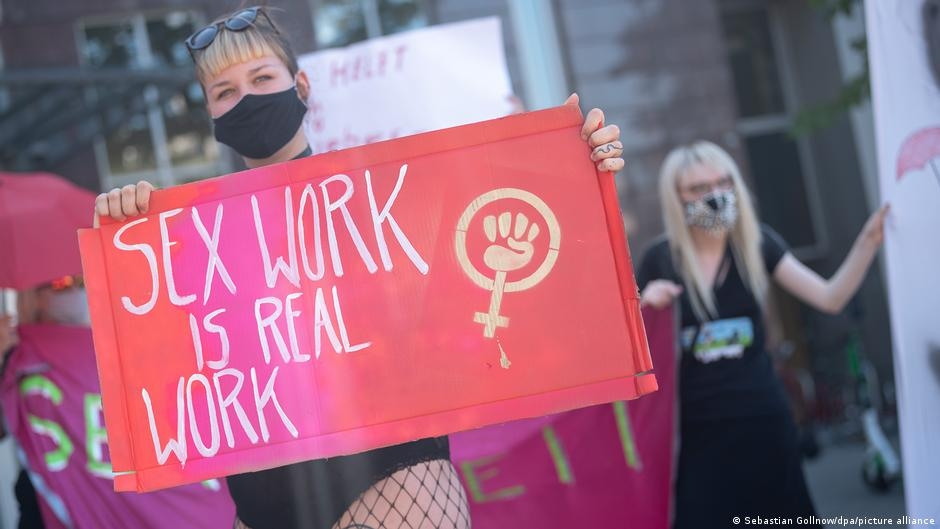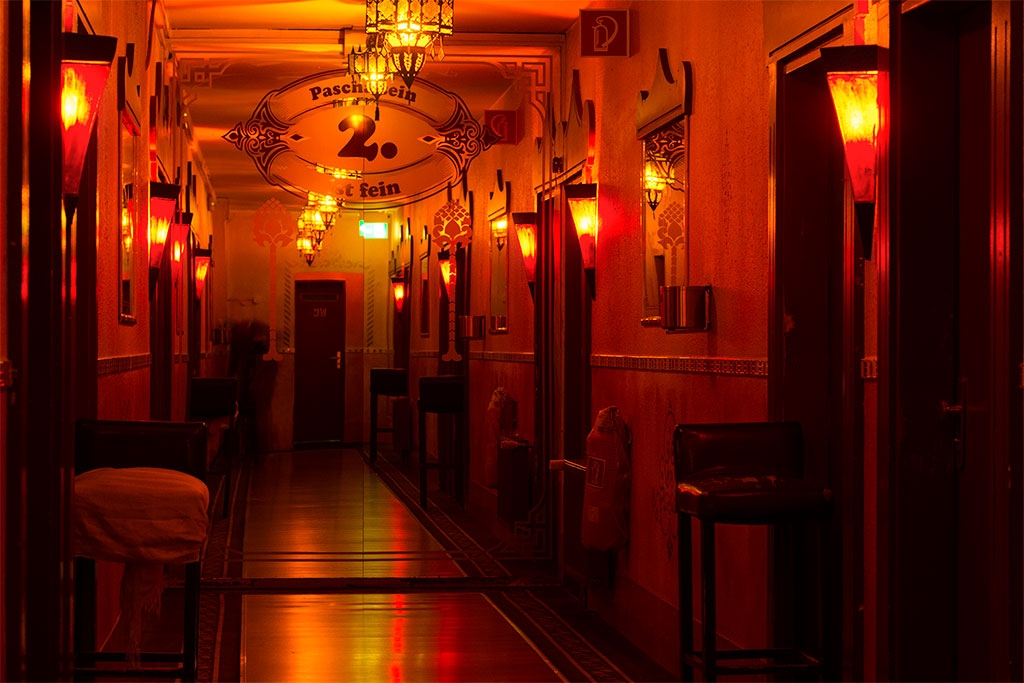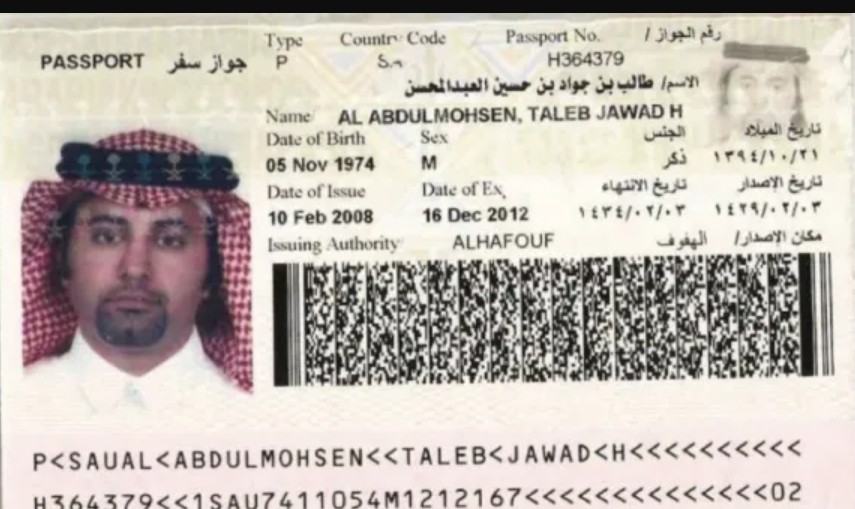Is Prostitution Legal in Germany?
| Table of Contents |
German society agreed that legal prostitution would, if not diminish, decrease criminal sex acts such as rape and adultery. In fact, famous prostitutes were often invited to some of the poshest parties of their time.
The legal ladies worked inside what were called, ‘Frauenhäuser’, which literally translates as ‘women houses’. These brothels ran as clean as a brothel could, until the 16th century when syphilis and The Reformation began invading German houses, bodies and minds. No one really wanted to see the brothels go, at least no male German wanted to let go of their sideline hobby, so by the 19th century they began to enforce a little more control over these Frauenhäuser. The local ladies then had to officially register with police and undergo regular health checks.
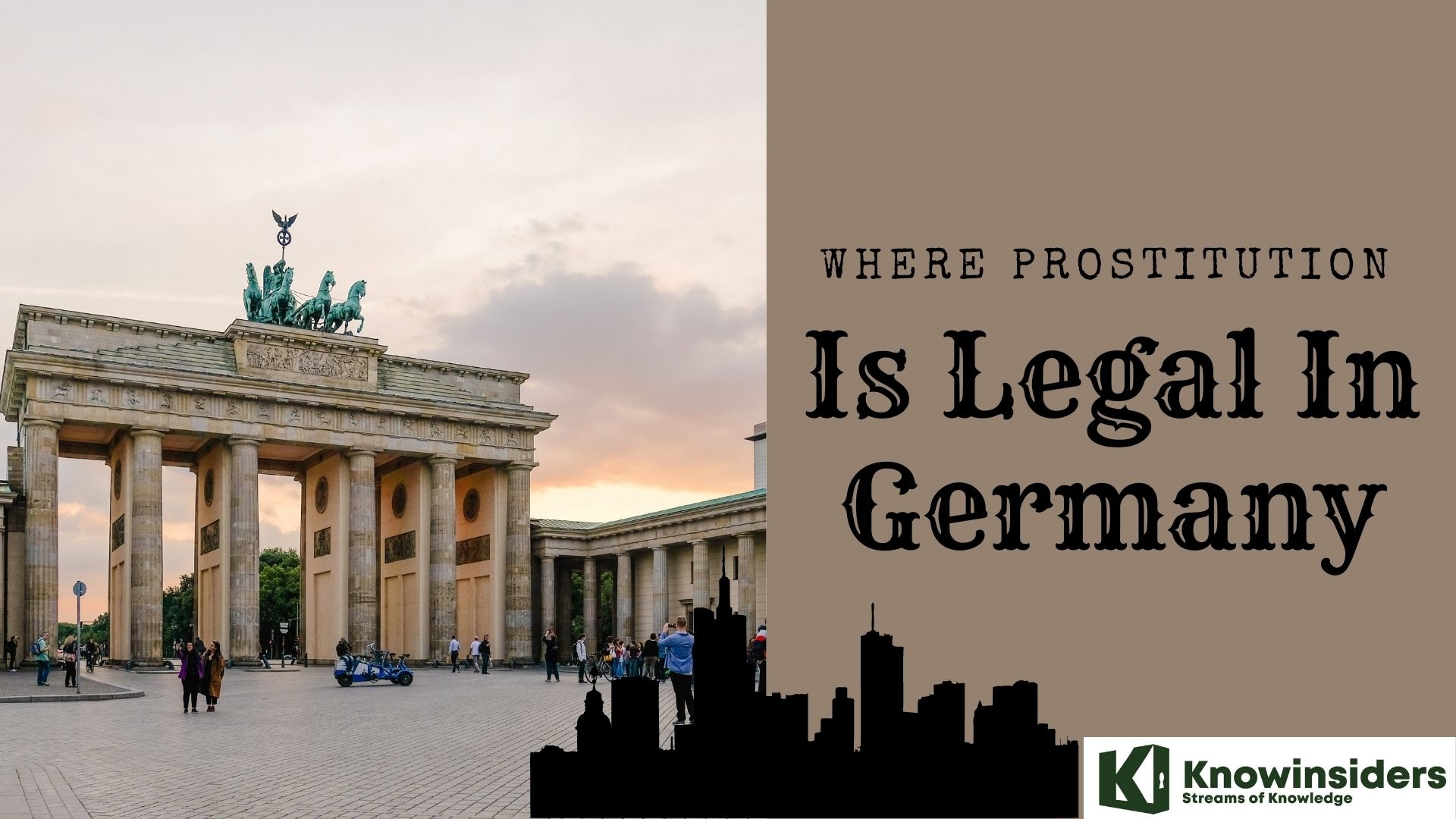 |
| Where Prostitution Is Legal In Germany |
Is Prostitution Legal in Germany?
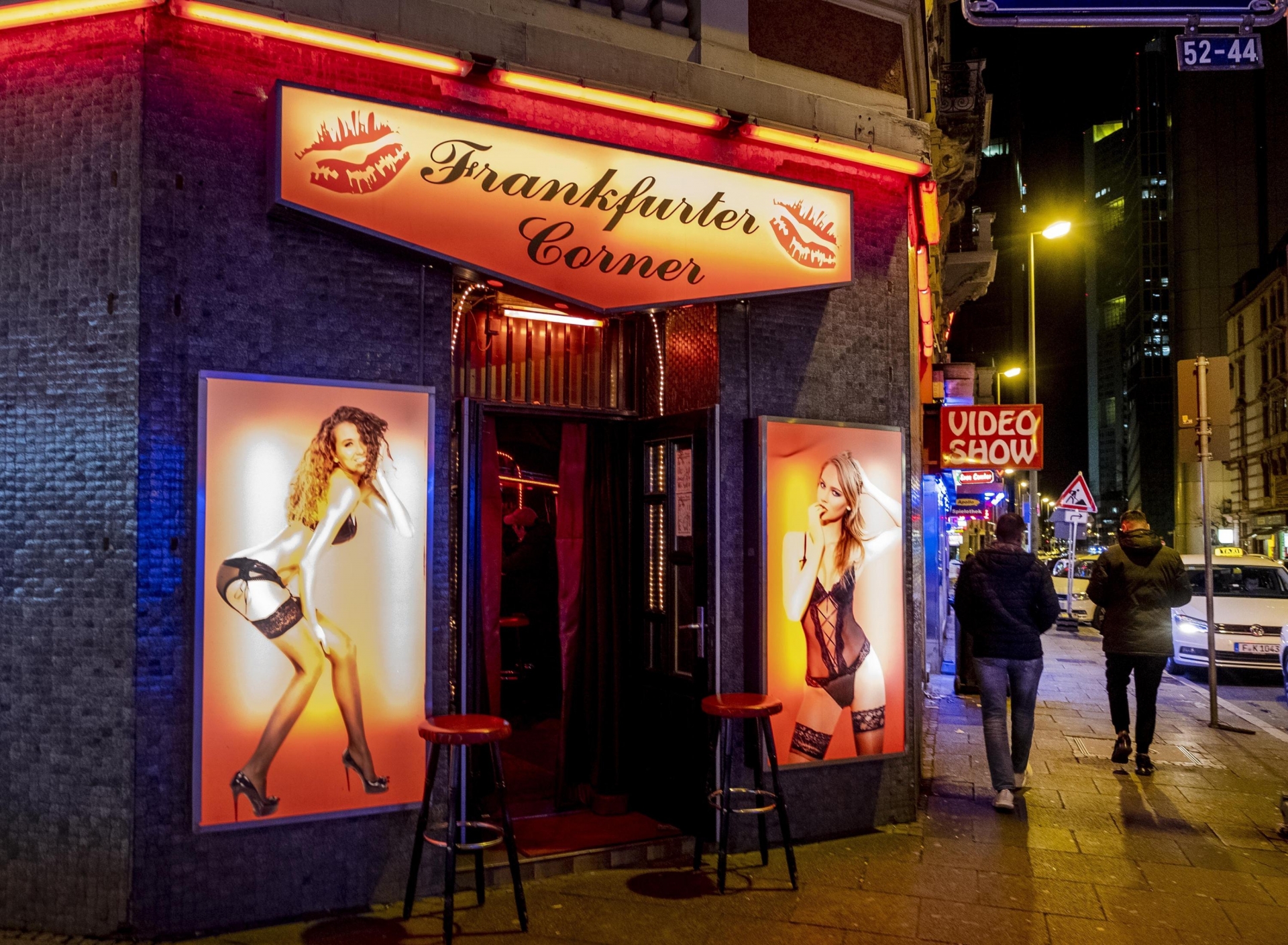 |
| Photo: APNews |
Prostitution is legal in Germany and is regulated in the “Prostitute Protection Act” from 2017. KOK welcomes a liberal approach, since condemning prostitution and stigmatising sex workers has a negative impact on women in particular, especially those who willingly engage in the profession.
KOK places special emphasis on highlighting the differences between prostitution and trafficking in women. We respect sex workers who engage in their profession of their own free will. We do not stigmatise them, and our view has always been that voluntary prostitution should be recognised as a personal decision made by the individual in question. Making prostitution illegal would deny sexworkers their right to work and would disregards their self-determination and responsibility.
We would like to state clearly that not every sex worker, and not every migrated woman who works as a sex worker, is a victim of human trafficking. Trafficking in human beings only takes place in circumstances where a person is exploited, coerced, abused or otherwise forced to perform sexual or non-sexual work.
It was in 2002 when the prostitution act entered into force, which regulated the legal rights of sex workers towards their costumers and put the provision of sexual services in the context of an employment relationship.
Legal Prostitution in Germany (Update)
Over twenty years after Germany legalized prostitution, the topic is generating discussion once more.
In a little more than two decades, Germany has developed into a sex tourist paradise. Visitors to Hamburg's brothels travel from all over the world to avail themselves of perfectly legitimate "services".
In 2002, the Social Democrats and Greens passed a law legalizing prostitution with the intention of giving sex workers a professional status, security, and autonomy. However, this law also made pimping legal by establishing the position of "sex entrepreneur." For that reason, organized crime continues to play a major role in this profitable industry.
Officially, there are 2,310 places in the nation that provide sex services, but the federal statistics office Destatis estimates that there are 28,280 registered prostitutes. However, it's thought that there are far more unregistered sex workers out there. According to various organizations, this profitable industry employs between 200,000 and 400,000 people. Ninety percent of them are victims of human trafficking, according to multiple studies.
Prostitution Act
 |
| Photo: Fight the New Drug |
The Prostitution Act (Prostitutionsgesetz - ProstG) is a federal law in Germany that regulates the legal status of prostitution as a service in order to improve the legal and social situation of prostitutes. The law was promulgated on 20 December 2001 and has been in force since 1 January 2002. At the same time the Strafgesetzbuch (Criminal Code) §180a (exploitation of prostitutes) and §181a (pimping) were amended so that the creation of an adequate working environment is no longer punishable as long as no exploitation of prostitutes takes place.
Sexual acts in the context of a prostitution contract are now valid to establish claims for compensation since the law came into force. This has not only significance for civil law, but also criminal law (property offences). In addition, prostitutes can now regularly insure in the statutory health, unemployment and pension insurance.
Construction and Content
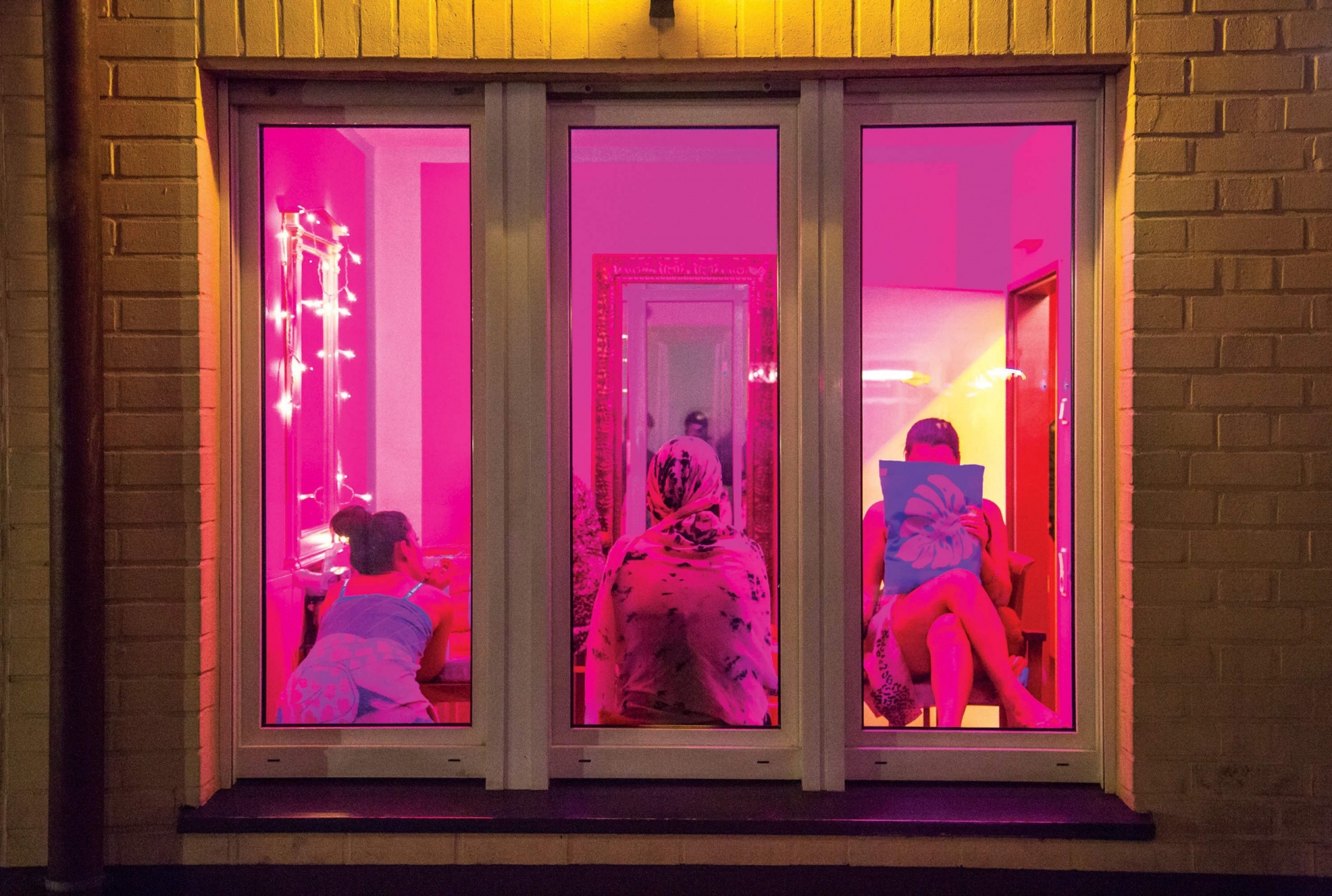 |
| Photo: New Statesman |
Legal Development
Prior to the entry into force of the Prostitution Act, contracts for sexual services were generally regarded as immoral within the meaning of Section 138(1) of the BGB (civil code). The legal consequence of immorality was the nullity of the contract. Therefore, neither a claim of the customer for the provision of the service nor a claim of the prostitutes for the agreed consideration is valid. The result was the practice of prepayment; A refund of the fee was excluded in this case according to §817 sentence 2 BGB .
According to the Administrative court of Berlin, prostitution was no longer immoral even before the Prostitution Act: "[...] the state obligation to protect human dignity (Article 1(1) sentence 2 GG) must not be misused to harm individuals through interference with protecting individual self-determination as it were from itself." The European Court of Justice has made it clear that prostitution is a gainful employment that is" part of the common economic life "within the meaning of Article 2 EC. Rulings on immorality, however, have not been passed in civil law, due to doubts about enforceability, compensation for bad performance, etc.
Related: Where Is Prostitution Legal in Europe and Countries Ban on Sex Work
Regulatory content
"If sexual acts have been carried out against a previously agreed charge, this agreement constitutes a legally enforceable claim. The same applies if a person, in particular in the context of an employment relationship, provides for the provision of such acts for a previously agreed fee for a certain period of time."
— §1 ProstG
§1 states that after the provision of sexual services, the provider is entitled to payment of the promised consideration. It clarifies that the customer does not have a claim for the performance of the service, or that the provision of the service is enforceable. As judgements on the establishment of marital union are not enforceable, (§120 paragraph 3 FamFG), enforcement would be inconsistent and possibly unconstitutional as a violation of Art. 1 GG (respect for human dignity).
§2 of the law ensures that the objection of immorality is excluded because of the nature of the service. It should not be required in court to prove the quality of the services provided. However, other circumstances, such as inability to work and probably also immorality because of usury are not excluded.
In addition, the payment claim can not be assigned. Beyond the wording, the claim also can not be asserted by means of the power of attorney or process status, although substitution (acting in a foreign name) remains possible. This makes trading in such claims impossible.
"For prostitutes, the limited right to give instructions in the context of a dependent activity does not preclude the assumption of employment within the meaning of social security law."
— §3 ProstG
In §3 the conditions for admission to social security are created.
The enforceability of fees in practice is of little importance, since payment is almost always made in advance.
The Prostitution Act did not repeal the prohibition on advertising for sexual services (Section 119 OWiG). The offence (Section 120 OWiG) and the offence (Section 184d StGB) of prohibited prostitution, ie the infringement of a restricted area decree issued on the basis of Article 297 of the CCAIL, also remained unchanged.
Criticism
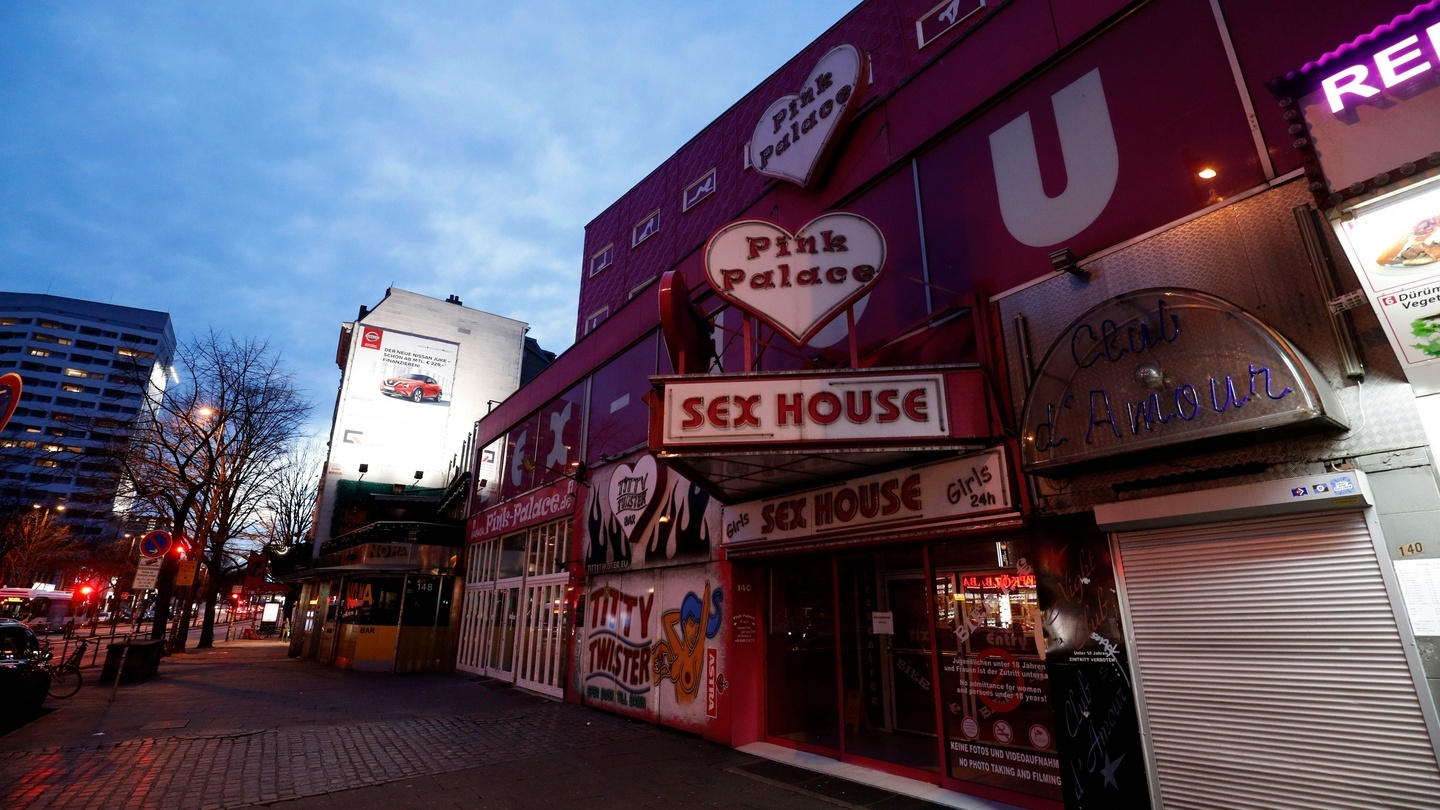 |
| Photo: The Irish Times |
It is argued that the formulation that "further objections and objections are excluded" has gone too far and requires a teleological reduction. For even the inability to work, in particular the minority of the customer, is a (legal obstacle) objection, which should be excluded according to the wording. It could not be intended by the legislature that, for example, the minor, who can not conclude effective contracts for the acquisition of everyday objects, can now justify effective compensation claims for sexual services.
Since human dignity, as the highest constitutional value (Article 1 of the Basic Law), is not at the discretion of the state, or even by law, prostitution, according to some lawyers, continues to be immoral. In particular, it argues that § 2 ProstG only excludes the objection of immorality and § 1 speaks only of a "legally effective demand", however, does not order positively that the contract is not immoral or even effective. Also, the lack of enforceability of sexual performance shows clearly that it is still not a normal contract. However, the legal relationships are finally regulated by the Prostitution Act.
Although § 180a StGB criminalises the "exploitation of prostitutes", the paragraph is rarely used, as both economic dependence and personal dependence are difficult to prove. A conviction in criminal proceedings is unlikely without the statement of those affected.
The magazine EMMA, which holds a critical view on prostitution in general, claims the Prostitution Act promotes forced prostitution.
The Federal Social Court found, in a judgment of 6 May 2009, that the Prostitution Act was enacted to protect employees and not to promote business. A brothel operator can not demand the placement of prostitutes by the Federal Employment Agency.
Amendment
The Prostitution Act will undergo a "comprehensive revision," according to the coalition agreement that the CDU, CSU, and SPD negotiated after the 2013 general election. In this context, the legal basis for the control of prostitution sites by the regulatory authorities should be improved. In the same section of the coalition agreement, albeit without a direct legal link to the Prostitution Act, the governing parties also announced measures against forced prostitution and trafficking. Thus, the victims should be better protected and corresponding offenders punished more consistently. In the future, action should also be taken against people "who knowingly and wilfully exploit the predicament of victims of trafficking and forced prostitution and abuse them for sexual acts".
In September 2016, the Prostitute Protection Act was passed, which introduced a compulsory registration for prostitutes, a compulsory permit for the prostitution industry and other regulations, such as regular, compulsory health advice and use of condoms.
Health
Annual health checks for prostitutes are mandated by law in Germany. Previously, in Bavaria (Bayern), law mandates the use of condoms for sexual intercourse with prostitutes, including oral contact. In 2017 this was extended to the whole of Germany.
Germany's Legal Prostitution Industry
Weimer women to the streets and then to the campsAfter the First World War, the German economy got hit hard, causing even more women to seek jobs in the brothels. These Weimer women took their pride to the streets and enjoyed a new sense of freedom and privilege. However, all good things must come to an end, sort of. When the Nazi Party came to power they threw the prostitutes into concentration camps, labeling them as degenerates. However, unlike most political parties, the Nazi Party decided there was room for brothels in society, it just had to be under their control and work according to their order. The economy of sexSo, the Nazis created brothels in concentration camps and military brothels, with boundaries under their strict supervision. By the end of the war, brothels became illegal in East Germany, but remained legal in West Germany. By the end of the 1960s, one of the largest brothels in the world was opened in Hamburg on the Reeperbahn, which is still active today for men’s eyes (and other body parts) only. Cologne wanted their own large brothel and eventually outdid Hamburg in 1972, calling their grand achievement ‘Pascha’. By the 21st century, codes and laws became tighter and prices and profits began to rise. A sort of social justiceThese laws couldn’t last very long, German society overall doesn’t apply conservative disgrace on sex workers like many other religious countries, and finally the law was dropped in 2002. Women were then able to obtain contracts, pay taxes for their work, have employment benefits and receive health insurance. Many of these women work under the supervision of a pimp, some even work under the Hell’s Angels, in cities like Hamburg and Frankfurt. Today you can order a woman from your phone, find a drive-thru sex outlet, or simply pick up the girl of your choice from the streets of Berlin. With new rights and privileges credited to prostitutes, the German government thought they could reduce, if not eliminate, human trafficking. However, according to many officials the numbers may have only increased. The police have no real control over this sex scene, so are therefore unable to gather accurate statistics. Many of the pimps bring in sex workers from Eastern Europe and force them to work in private homes. It’s hard to imagine their customers asking for proof of citizenship, unless of course they are an undercover cop, which tends not to be the case. In Berlin, there is certainly no shortage of street workers in and around the city. If you’re curious about the street working scene, take a walk or ride down Kurfürstenstraße to get an insight into today’s prostitutes in Berlin. While many cities have created specific zones where prostitution can operate, Berlin is a boundless playground, uncontrolled by higher authorities. Tourists come from all over the world for the cheap rates in sex clubs, to visit the notorious Artemis brothel, and the most obvious streets and inconspicuous corners of Berlin. Germany Bans Prostitution During Pandemic
Among the twisting alleys of the St. Pauli district in Hamburg is the Reeperbahn, Germany's busiest red-light district. One stretch, Herbertstrasse, is blocked off to women who aren't sex workers. This part of Hamburg is nicknamed in German "die sündigste Meile," or "the most sinful mile." But for the first time in two centuries, this mile is less sinful than ever, thanks to the coronavirus pandemic. Usually, "you can get whatever you want if you go on the right street," says Natalie, a Hamburg brothel manager. NPR is using only her first name to protect her identity as a figure in a controversial industry that's come under increased police scrutiny. But now, "it's a ghost town," Natalie says. "It's like a Western movie." Prostitution is legal and regulated in Germany, but lawmakers banned it in March to prevent the spread of the coronavirus. At the start of the summer, as this country and the rest of Europe began to reopen their economies, Germany's prostitution ban remained in place. That has angered sex workers and brothel owners and managers such as Natalie, who say the prohibition has not only meant a sudden loss of income, but, more importantly, it has put the workers' lives in danger. Natalie rents her brothel from a landlord and leases rooms to dozens of sex workers who charge their clients hourly rates. This economic chain, estimated to include as many as half a million sex workers and billions of dollars in revenue nationwide, was broken when the authorities shut the brothels. The workers responded over the summer with protests in Cologne, Berlin and Hamburg, demanding that the government let them go back to work, but Germany's government hasn't budged. "If we only had one single [coronavirus] case among sex workers, it could potentially, during one day, reach more than 60 other people who would then spread it themselves," says Martin Helfrich, spokesman for Hamburg's Ministry of Social and Health Issues, the agency in charge of regulating the city's sex work industry. He says the nature of sex work is justification for banning it during the pandemic. Contact tracing — which Germany has excelled at — is also difficult in an industry in which documenting clients' personal details is "expected to be flawed, since who wants to leave the correct contact details of his house and his wife with a prostitute?" Helfrich adds. The city of Hamburg has stepped in to help by sending welfare checks to registered sex workers and even renting a hotel to house those with nowhere to live during the pandemic. But it has also overseen strict enforcement of the ban, issuing fines of more than $6,000 to sex workers caught working. (In Hamburg, there are no fines for their clients.) This has left workers such as Emily Adaire vulnerable. Adaire, who identifies as a transgender female, asked NPR to use her professional name for fear of revealing her work to her family and the police. She says she now earns a quarter of what she made before the shutdown by working in online porn and by defying the ban by meeting a handful of regular clients who she knows aren't police officers. But one client, she says, used the threat of a police fine to take advantage of her. "He demanded more stuff than usual for a quite low price, and I accepted," Adaire says. "I was like, 'OK, I can do it.' And then afterwards, he was not fully satisfied and he demanded back one-third of the cash." She says she didn't know what to do. "And usually I don't do that because I think, 'OK, I got naked for you. I had sex with you. And it doesn't meet your expectations. I'm sorry, but I can't do anything about it,' " she says. "And then I was like, 'OK, you can just call the police on me.' And he was also a bit angry and I was a bit scared. So I just walked home and cried a bit." Some of the most vulnerable among them are the many sex workers in Germany who aren't registered and are typically from Romania, Bulgaria and other parts of Eastern Europe. "They've lost the place where they stayed because the brothels closed, and now many have left, some have returned home, and some are staying at a client's place and are now in dependent relationships," Prophet says. To help implement measures against the spread of the coronavirus, brothel owners and managers such as Natalie collaborating with sex workers came up with a hygiene plan they've shared with health authorities. "It's very smart because it goes from A to Z," Natalie says. "Even the people who were concerned at first, they were like, 'Oh yeah. That makes sense.' " The plan calls for sex workers and their clients to wear masks at all times except for during oral sex. "When it comes to oral sex, the face of the sex worker and the face of the client needs to be 90 centimeters away from each other," Natalie says. "We are Germans. We always stick to rules, and we do that even in the bedroom." |
FAQs About Prostitution in Germany
Is selling sex criminalised?
Selling sex is technically legal in Germany although it is regulated at the local level. Local authorities/cities can place restrictions on how and where sex work takes place. If sex workers work outside of these restrictions then they are liable to fines and potentially imprisonment. There are only a few places in Germany (Berlin one example) where sex work can take place freely. Most other cities regulate it and restrict where and how it can happen. There are some places where sex work is effectively totally illegal because the local regulations are so stringent. Under new laws sex workers are required to register with the authorities to work legally and brothels can only hire registered workers. This means that unregistered sex workers are now working illegally.
Is buying sex criminalised?
Not generally although clients may be liable to fines if caught buying sex in areas that are prohibited at the local level.
Is organising/managing criminalised?
Brothel-keeping is legal and under new laws recently adopted any brothel will have to be registered and licensed under stringent regulations
Is there mandatory HIV/STI testing?
No
Is there mandatory registration?
Yes under new laws recently introduced sex workers will be required to register to work legally and undergo counselling from a social worker. Must renew registration every 2 years. Must be registered to work in a brothel and brothel owners responsible for making sure only employ registered workers.
If sex work is regulated, is it in line with other work, or are the regulations unfair or overly restrictive?
No - sex work is heavily restricted and in the majority of Germany is still largely illegal
Is sex work recognised as work?
The German law at a federal level recognises contracts between sex workers and clients as valid. At the local level it is regulated in many ways as an "immoral practice" or "public order" issue
Is sex work decriminalised with limited regulation?
No
 Where The Prostitution Is Legal In Australia? Where The Prostitution Is Legal In Australia? Prostitution in Australia (Sex work in Australia) is governed by state and territory laws, which vary considerably. |
 Where Prostitution Is Legal In Nevada Where Prostitution Is Legal In Nevada Nevada is the only U.S. state where prostitution is legally permitted in some ... |
 Where Is Prostitution Legal in Europe and Countries Ban on Sex Work Where Is Prostitution Legal in Europe and Countries Ban on Sex Work Which countries is prostitution legal in Europe and What countries observe a strict ban on sex work? |
 Is Prostitution Legal In China? Is Prostitution Legal In China? Prostitution in China is illegal but practiced openly. Scroll down to know more about sex worker in China! |

